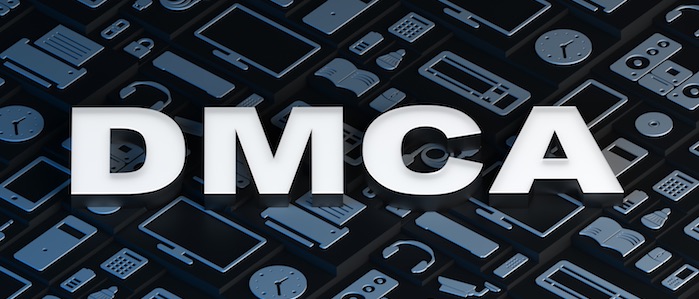In 2017, there were several noteworthy updates and decisions to the Digital Millennium Copyright Act (DMCA), some of which are addressed below.
Mavrix Photographs LLC v. LiveJournal Inc., 873 F.3d 1045 (9th Cir. 2017)
In April 2017, the U.S. Court of Appeals for the Ninth Circuit decided a case involving the safe harbor provision of the DMCA. In the case Mavrix Photographs LLC v. LiveJournal Inc., 853 F.3d 1020 (9th Cir. 2017), the Ninth Circuit found that a website can lose the protections afforded to it by the DMCA’s safe harbor provisions in certain instances. Specifically, the court stated that where moderators assist in selecting content submitted by users, an online service provider may not be eligible for safe harbor protections.
Plaintiff Mavrix sued the defendant LiveJournal for posting Mavrix’s copyrighted photographs online without permission. The plaintiff appealed following the district court’s decision that the DMCA’s safe harbor provision protected LiveJournal from liability.
LiveJournal is a social media website that allows users to create communities where they can post and comment on content related to a particular topic. LiveJournal uses unpaid moderators to run the communities and ensure users are complying with LiveJournal rules. In addition, LiveJournal uses notice and takedown procedures that allow it to promptly remove both infringing content and repeat infringers from the site. One of the popular LiveJournal communities called “Oh No They Didn’t!” (ONTD) featured celebrity news and gossip, including photographs of celebrities.
Mavrix, a photography company specializing in candid celebrity photographs, sued LiveJournal after 20 of its photographs were posted in the ONTD community without permission. LiveJournal argued that the safe harbor provision protected it from liability for copyright infringement.
Section 512(c), the DMCA’s safe harbor provision, provides a substantial amount of protection for online service providers. Typically, online service providers are protected from liability in cases where they host infringing content uploaded by users, if content is expeditiously removed. To rely on this provision, LiveJournal was required to prove (1) it did not have actual or apparent knowledge of the infringing content; (2) it did not receive a financial benefit directly attributable to the infringing activity; and (3) it expeditiously removed or blocked the content once it was notified of the infringement.
The Ninth Circuit found that there are genuine issues of material fact regarding whether the LiveJournal moderators are LiveJournal’s agents. If the moderators are considered agents, LiveJournal will be liable for the acts of the ONTD moderators, including posting the 20 Mavrix photographs. This decision is particularly notable because it is a departure from the protections that are traditionally afforded to content providers under the DMCA. Content-hosting websites may have a harder time protecting themselves from liability for copyright infringement moving forward. It is too early to tell what the ramifications of this decision will be, but the decision may result in content providers opting to forego strict oversight of user-generated content if the DMCA is not likely to protect content providers from liability.
Disney Enterprises, Inc. v. VidAngel, Inc., 869 F.3d 848 (9th Cir. 2017)
In August 2017, the U.S. Court of Appeals for the Ninth Circuit affirmed the district court’s decision granting a preliminary injunction in the case Disney Enterprises, Inc. v. VidAngel, Inc., 869 F.3d 848 (9th Cir. 2017). In 2016, Disney Enterprises, LucasFilm Limited, Twentieth Century Fox Film Corporation, and Warner Brothers Entertainment (the Studios) filed suit against VidAngel for copyright infringement in violation of the DMCA. The Ninth Circuit held that VidAngel violated the DMCA and the Copyright Act. The court found that the DMCA’s anti-circumvention provision protected the Studios’ access and use of copyrighted works.
VidAngel provides an unlicensed online streaming service for movies and television shows, which also allows customers to remove objectionable content. To use the service, customers must purchase a physical copy of a movie or television show from VidAngel. VidAngel then decrypts the physical copies and streams the movie or television show to customers. Customers have the option of taking possession of the physical copy or keeping the physical copy with VidAngel. After a customer has streamed and watched a video, customers also have the option of reselling the physical copy back to VidAngel for almost the entire purchase price. Ninety-nine percent of VidAngel customers take advantage of the reselling option and end up paying only $1 for watching a $20 video.
The Studios alleged that VidAngel violated the DMCA for circumventing the technological measures controlling access to the Studios’ copyrighted works. The district court granted a preliminary injunction to the Studios, finding that VidAngel violated its copyrights and the DMCA.
The DMCA’s anti-circumvention provision, 17 U.S.C. § 1201(a)(1)(A), states that it is illegal to “circumvent a technological measure that effectively controls access to a [copyrighted] work.” The DMCA states that “circumvention” means “to decrypt an encrypted work…without the authority of the copyright owner.” Here, since the Studios are clearly the copyright owners of the movies and television shows that VidAngel streams, VidAngel has decrypted the work without permission. The provision also included exemption for users of certain types of works who would be adversely affected by such a prohibition because it would prevent them from making non-infringing uses of certain works.
The anti-circumvention provision does exempt certain parties from liability. VidAngel argued that as a lawful purchaser of the DVDs, it is authorized to decrypt the discs just like any ordinary purchaser. However, this exemption applies only to those parties whom the copyright owner has authorized the circumvention. The Ninth Circuit indicated that it is the Studios, not the customers purchasing the physical copies of the works, that are required to grant VidAngel permission to circumvent the encryption on the discs. Further, the Studios did not authorize the customers purchasing the DVDs to circumvent the encryption technology. Instead, by purchasing the DVDs, the customers were authorized only to view the contents.
The Ninth Circuit agreed with the district court that VidAngel’s actions constituted circumvention of technological measures to protect copyright works. As a result, VidAngel was enjoined from copying, streaming, transmitting, or displaying the Studios’ copyrighted works.

![[IPWatchdog Logo]](https://ipwatchdog.com/wp-content/themes/IPWatchdog%20-%202023/assets/images/temp/logo-small@2x.png)


![[Advertisement]](https://ipwatchdog.com/wp-content/uploads/2024/04/Patent-Litigation-Masters-2024-sidebar-700x500-1.jpg)

![[Advertisement]](https://ipwatchdog.com/wp-content/uploads/2021/12/WEBINAR-336-x-280-px.png)
![[Advertisement]](https://ipwatchdog.com/wp-content/uploads/2021/12/2021-Patent-Practice-on-Demand-recorded-Feb-2021-336-x-280.jpg)
![[Advertisement]](https://ipwatchdog.com/wp-content/uploads/2021/12/Ad-4-The-Invent-Patent-System™.png)






Join the Discussion
No comments yet.